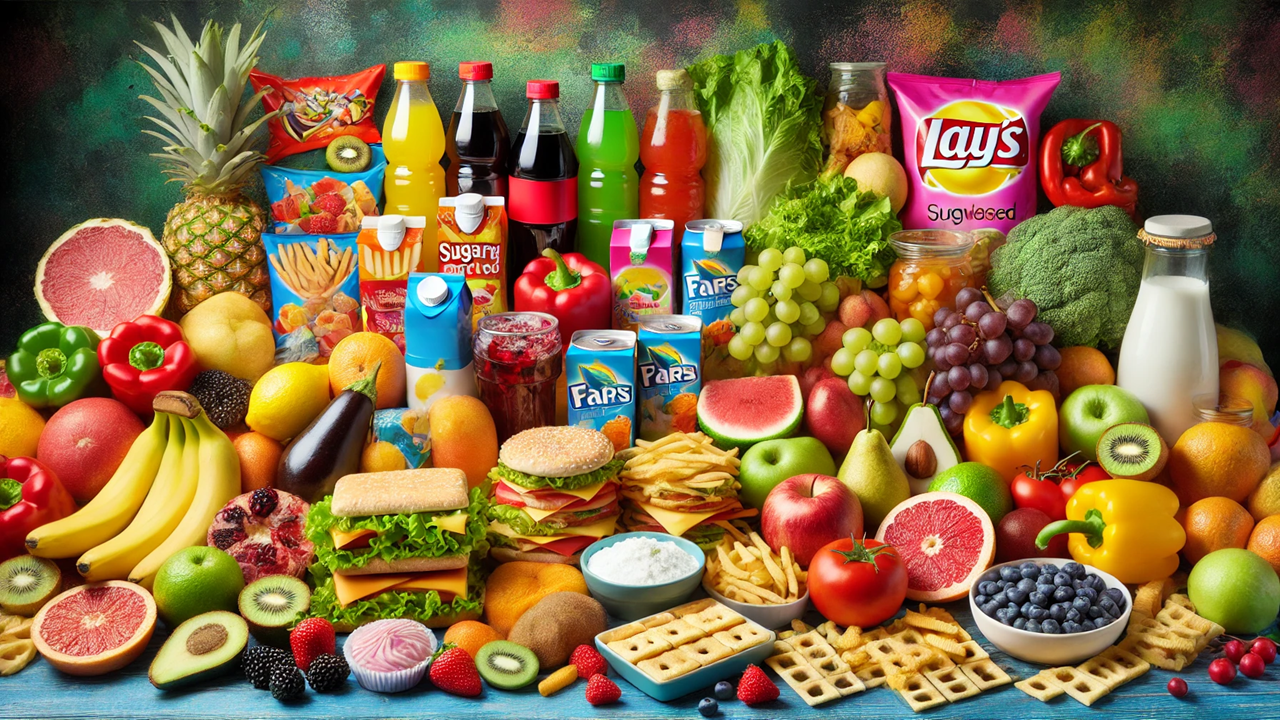Brazil's Bold Move: How Taxing Junk Food Could Revolutionize Health and Equality
A groundbreaking World Bank report explores the potential benefits of taxing processed and ultra-processed foods in Brazil. The study reveals how such a tax could enhance public health, promote equity, and boost fiscal revenues, particularly benefiting lower-income households.

To tackle soaring rates of non-communicable diseases (NCDs), Brazil is considering a bold move: taxing processed and ultra-processed foods. A recent World Bank report titled "Distributional Effects of Taxation of Processed Foods in Brazil," authored by Bernardo D.P. Coelho, Courtney Ivins, and Roberto Iunes, suggests this fiscal measure could bring about significant improvements in public health, enhance equity, and generate additional fiscal revenues.
NCDs, such as diabetes, heart disease, and cancer, are responsible for over 70% of deaths worldwide, with unhealthy diets playing a pivotal role. In Brazil, the consumption of processed and ultra-processed foods has been on the rise, contributing to the country's growing obesity epidemic. The report highlights that more than half of Brazilian adults are overweight, and nearly 26% are obese. This shift in dietary habits has led to an alarming increase in diet-related diseases, now accounting for almost 75% of all deaths in the country.
Processed foods, categorized using the NOVA classification, include items significantly modified from their natural state and often contain additives, preservatives, and artificial ingredients. These foods, such as sugary drinks, packaged snacks, and ready-to-eat meals, are linked to various negative health outcomes, including obesity, cardiovascular diseases, and certain cancers.
A Healthier Future Through Taxation
The World Bank study employs a comprehensive cost-benefit analysis model to assess the impact of a tax on processed foods. The analysis considers three key dimensions: changes in product expenditure, medical expenditure, and years of life lost. The findings indicate that such a tax would have a progressive impact, disproportionately benefiting lower-income households.
Product Expenditure: The study reveals that lower deciles, or the poorest households, would experience welfare gains from the tax. As prices for processed foods rise, these households would reduce their consumption of unhealthy foods and redirect their limited resources to other needs, resulting in a net positive effect on their welfare. In contrast, higher-income households would bear a greater tax burden due to their higher consumption levels of these products.
Medical Expenditure: By reducing the intake of processed foods, the incidence of related diseases would decline, leading to significant savings in medical expenses. The report highlights that the most substantial reductions in medical costs would benefit the poorest households, who are more dependent on Brazil's public health system, SUS.
Years of Life Lost: Perhaps the most compelling argument for the tax is its potential to save lives. The reduction in processed food consumption would decrease the number of years of life lost to diet-related diseases. Lower-income households would see the most considerable gains, with potential increases in life expectancy translating to higher lifetime incomes and improved overall well-being.
The Triple Win: Health, Equity, and Revenue
Implementing a tax on processed and ultra-processed foods is not without challenges. However, the World Bank report makes a strong case for its potential benefits, describing it as a "triple win" strategy. The policy could address pressing health concerns, promote greater equity by disproportionately benefiting lower-income households, and increase fiscal revenues that can be reinvested into public health and other social programs.
The report also underscores the importance of designing the tax with an equity lens, ensuring it does not disproportionately burden poorer households. Instead, the focus should be on creating a system that supports healthier dietary choices and reduces the overall health burden on the population.
Path to a Healthier, Fairer Brazil
As Brazil grapples with rising obesity rates and the associated health crises, taxing processed and ultra-processed foods emerges as a promising policy measure. The World Bank's report highlights the potential of this tax to bring about significant public health improvements, promote social equity, and boost fiscal revenues. By targeting the root causes of diet-related diseases, Brazil can pave the way for a healthier, more equitable future.
- FIRST PUBLISHED IN:
- Devdiscourse
ALSO READ
Brazil's Top Court Dismisses Google and Telegram Fake News Probe
Chad Eliminates Sleeping Sickness as a Public Health Problem, Marks Neglected Tropical Disease Eradication
WHO Issues Alert on Falsified Semaglutide Medicines Detected in Brazil, UK, and USA
Brazil Enters SailGP with Abu Dhabi Sovereign Fund Backing
GST Council to Review Taxation on Online Gaming and Fertilizers










